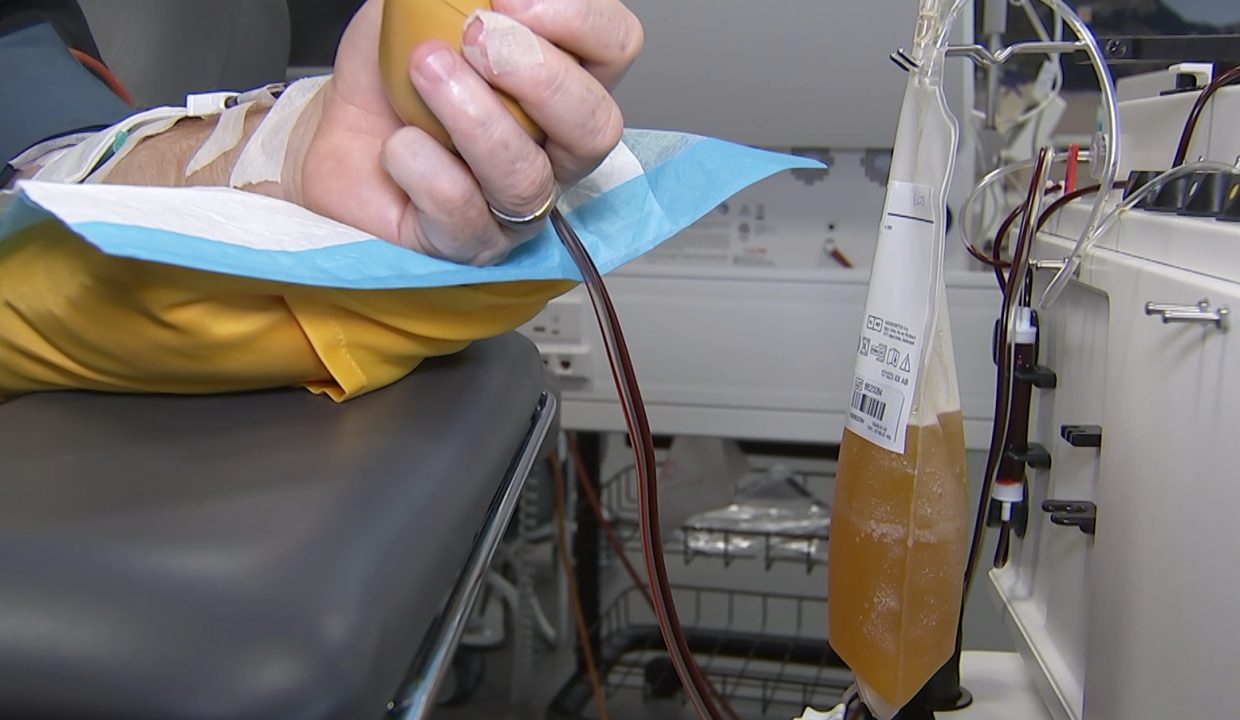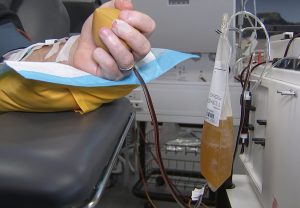
뉴질랜드, 혈장 부족으로 미국에 수입 의존…국내 기증자 부족 심각
New Zealand Faces Plasma Shortage, Relying on U.S. Imports Amid Domestic Donor Deficit
New Zealand is grappling with a critical plasma shortage, forcing the country to spend substantial amounts on importing plasma from the United States. This situation highlights the severe shortfall in domestic plasma donations.
Plasma, a yellowish liquid component of blood, is essential for supporting the immune system, aiding injury recovery, distributing nutrients, removing waste, and preventing infections. Despite a surge in plasma demand within New Zealand, the number of donors remains insufficient, necessitating the purchase of plasma from the U.S. at a cost of millions of dollars annually.
Approximately 17,500 donors in New Zealand regularly provide plasma, amounting to several tons per year. However, this supply is still inadequate to meet the growing demand, and any disruption in U.S. supply could pose a significant crisis for New Zealand.
Dr. Richard Charlewood, a transfusion medicine specialist in New Zealand, noted, “New Zealand’s limited number of plasma donors means we are struggling with self-sufficiency. More donors are needed to achieve self-sufficiency, but currently, we have no choice but to buy plasma from other countries.”
Plasma contains vital proteins, including immunoglobulins, which play a crucial role in defending against infections and removing cancer cells. The global plasma market is estimated at around $50 billion and is projected to grow to $75 billion by 2027, with the U.S. controlling 70% of the market and reaping the most significant profits.
Research from Georgetown University reveals that countries able to self-supply plasma have private companies managing plasma collection and compensating donors. Conversely, countries like New Zealand and Australia struggle with self-sufficiency and often do not offer compensation to plasma donors.
New Zealand was self-sufficient in plasma until 2012 but has since relied on external imports. Dr. Charlewood emphasized that increasing the number of plasma donors is crucial, but compensating donors is not a viable solution due to concerns over plasma safety and potential exploitation.
In observance of National Blood Donor Week, New Zealand is actively promoting plasma donation. Those interested in donating can conveniently schedule appointments via phone at 0800 GIVE BLOOD (0800 448 325) or through a smartphone app.
For more detailed information on donation scheduling and finding donation centers, visit the New Zealand Blood Service website:
Tel: 0800 GIVE BLOOD (0800 448 325)
https://www.nzblood.co.nz/give-blood/smartphone-app-for-donors/

뉴질랜드, 혈장 부족으로 미국에 수입 의존…국내 기증자 부족 심각
뉴질랜드가 혈장 부족으로 인해 생명을 위협받고 있으며, 이에 따라 미국으로부터 혈장을 수입하기 위해 막대한 비용을 지불하고 있는 상황이다.
혈장은 혈액의 노란색 액체로, 체내에서 면역 시스템을 지원하고, 부상 회복, 영양소 분배, 노폐물 제거, 감염 예방에 필수적인 성분이다. 현재 뉴질랜드는 혈장 수요가 급증하는 반면, 기증자의 수는 부족하여 미국으로부터 매년 수백만 달러를 지불하고 수입하고 있다.
뉴질랜드에서는 약 17,500명의 기증자가 정기적으로 혈장을 제공하고 있으며, 이들이 기증한 혈장은 연간 수 톤에 달한다. 그러나 여전히 수요에 비해 공급이 부족해, 미국에서의 공급이 중단될 경우 큰 위기에 직면할 수 있다.
리처드 찰우드 박사, 뉴질랜드 수혈 의학 전문가는 “뉴질랜드는 혈장 기증자가 부족하여 자급자족에 한계가 있다”며 “혈장 자급을 위해서는 더 많은 기증자가 필요하지만, 현재로서는 다른 나라에서 혈장을 구매할 수밖에 없는 상황”이라고 설명했다.
혈장은 면역글로불린을 비롯한 다양한 단백질을 포함하고 있으며, 이들 성분은 감염 방어와 암 세포 제거에 중요한 역할을 한다. 현재 세계 혈장 시장은 약 500억 달러 규모로 추산되며, 2027년에는 750억 달러로 확대될 것으로 보인다. 미국은 혈장 시장의 70%를 차지하며, 가장 큰 이익을 보고 있다.
미국 조지타운 대학의 연구에 따르면, 혈장 자급자족이 가능한 국가들은 민간 기업이 혈장 수급을 맡고 기증자에게 보상하는 방식을 채택하고 있다. 반면, 뉴질랜드와 호주 등은 자급자족에 어려움을 겪고 있으며, 혈장 기증자에게 보상을 하지 않는 경우가 많다.
뉴질랜드는 2012년까지 혈장 자급자족이 가능했으나, 2015년 이후로는 외부 수입에 의존하고 있다. 찰우드 박사는 혈장 기증자 수를 증가시킬 필요가 있지만, 기증자에게 대가를 지급하는 것은 혈장 안전과 착취 문제를 일으킬 수 있어 해결책이 아니라고 강조했다.
현재 뉴질랜드는 헌혈 주간을 맞아 혈장 기증자 모집을 적극적으로 홍보하고 있다. 헌혈에 참여하고자 하는 분들은 전화 0800 GIVE BLOOD (0800 448 325) 또는 스마트폰 앱을 통해 편리하게 예약할 수 있다.
아래 내용에 좀 더 자세한 헌혈 예약과 센터 정보는 뉴질랜드 혈액 서비스 웹사이트에서 확인할 수 있다.
전화번호 0800 GIVE BLOOD (0800 448 325) 또는 스마트폰 앱으로 더욱 편리하게 헌혈에 동참할 수 있다.
https://www.nzblood.co.nz/give-blood/smartphone-app-for-donors/
헌혈 예약하기/헌혈 센터 찾기: https://www.nzblood.co.nz/booking/
